Related Projects
Related Publications
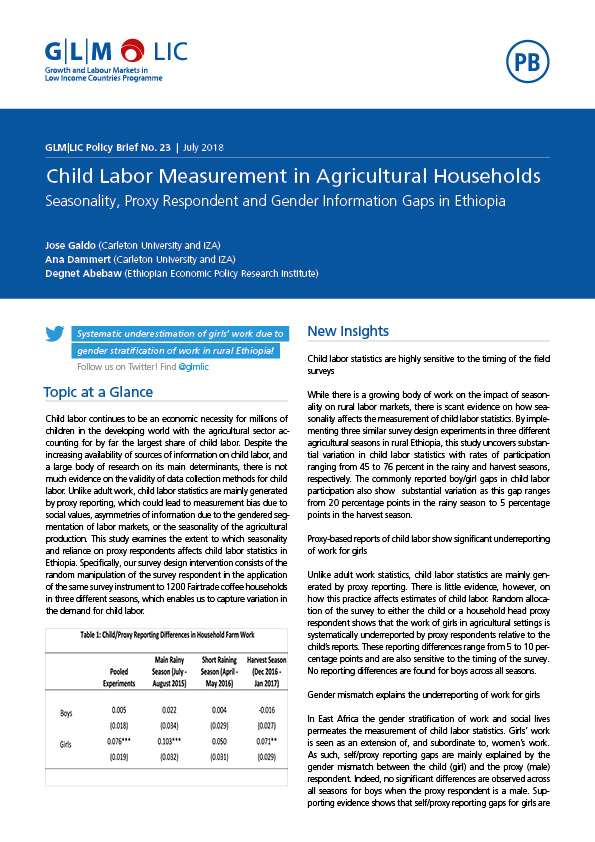
GLM|LIC Policy Brief No. 23
Child Labor Measurement in Agricultural Households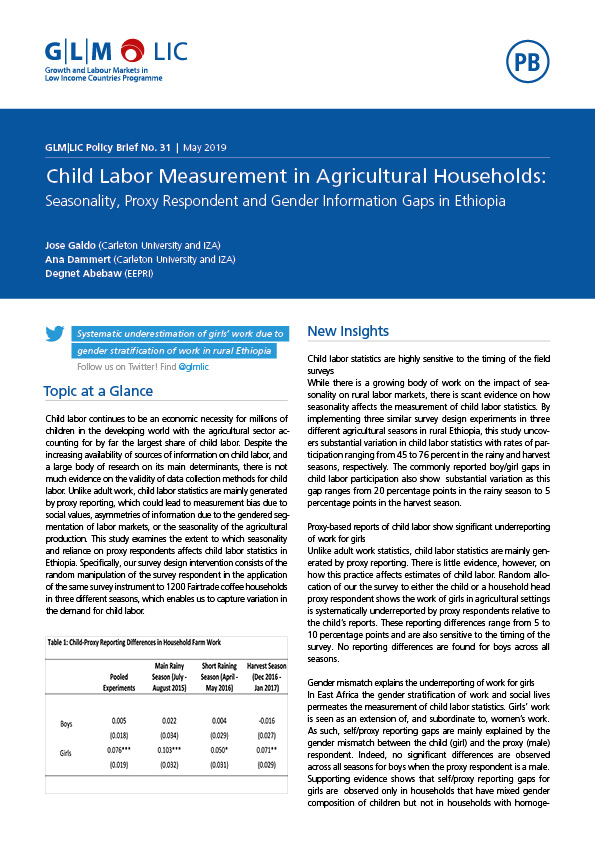
GLM|LIC Policy Brief No. 31
Child Labor Measurement in Agricultural Households: Seasonality, Proxy Respondent and Gender Information Gaps in Ethiopia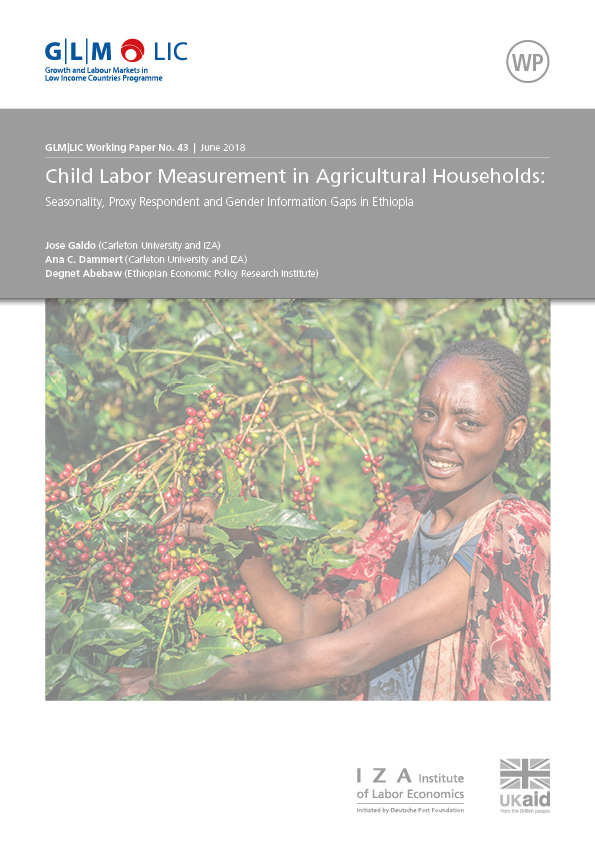
GLM|LIC Working Paper No. 43
Child Labor Measurement in Agricultural Households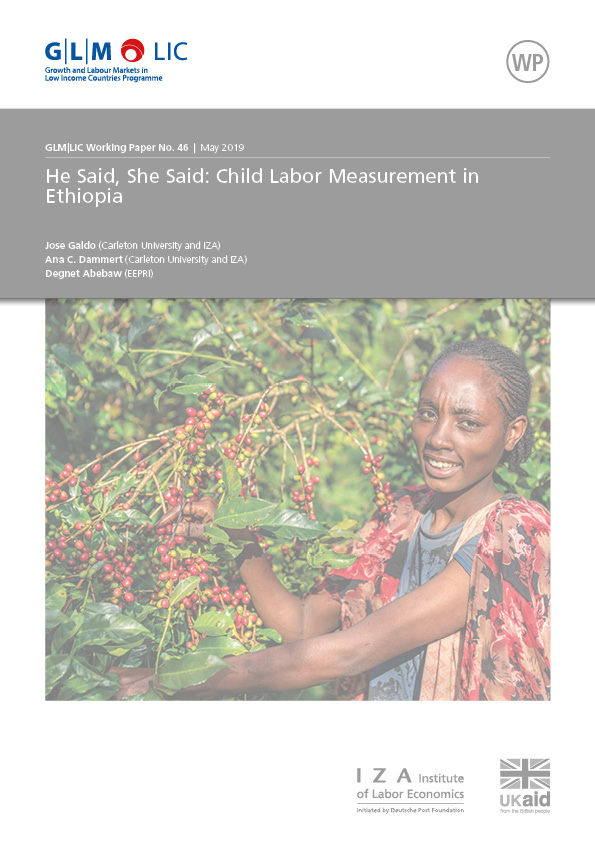
GLM|LIC Working Paper No. 46
He Said, She Said: Child Labor Measurement in Ethiopia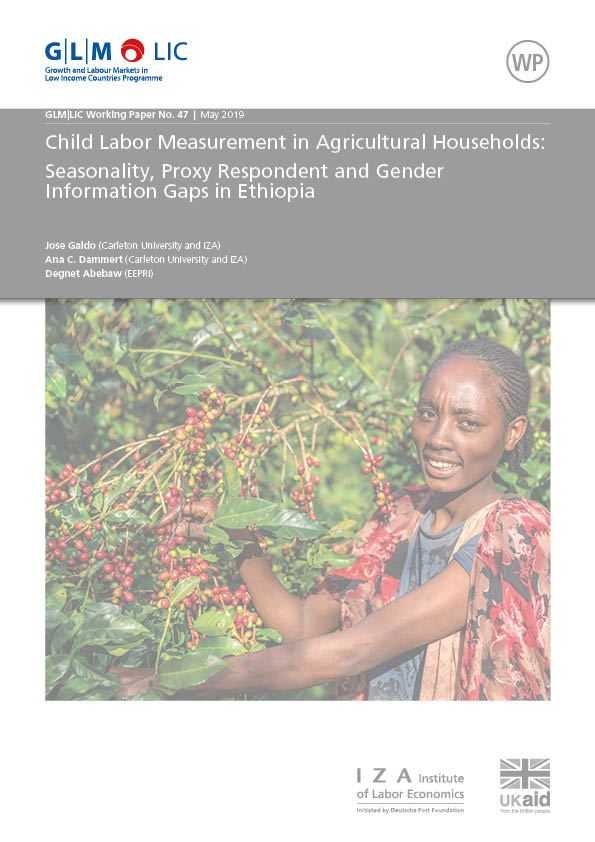
GLM|LIC Working Paper No. 47
Child Labor Measurement in Agricultural Households: Seasonality, Proxy Respondent and Gender Information Gaps in Ethiopia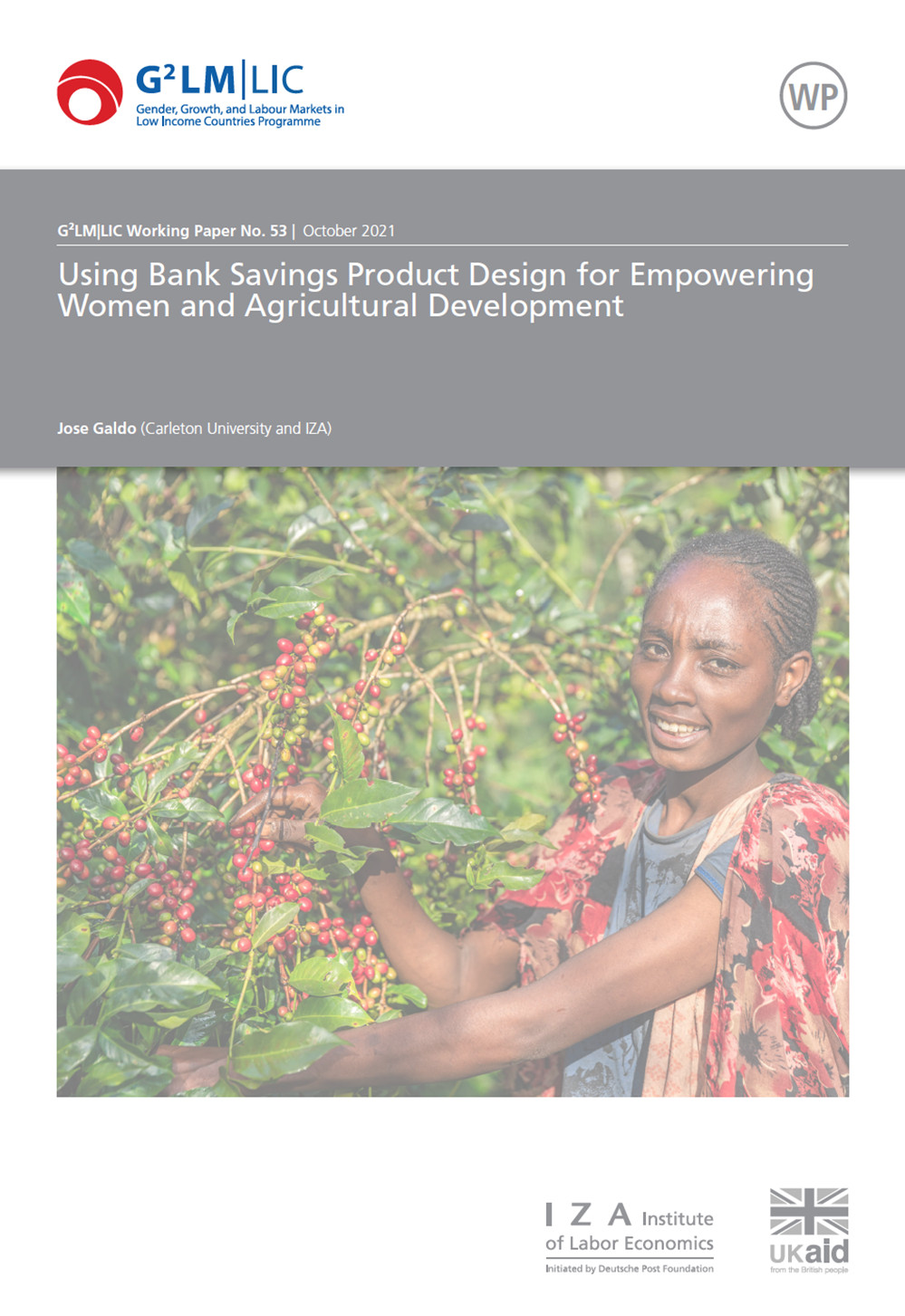
G²LM|LIC Working Paper No. 53
Using Bank Savings Product Design for Empowering Women and Agricultural Development
Published Articles
-
The World Bank Economic Review
(Joint) Bank Savings, Female Empowerment, and Child Labor in Rural Ethiopia -
Economics Letters, Vol. 203
Assessing adult farm labor statistis: Evidence from a survey design experiment in Ethiopia -
The World Bank Economic Review
Gender Bias in Agricultural Child Labor: Evidence from Survey Design Experiments
